Bio Mining
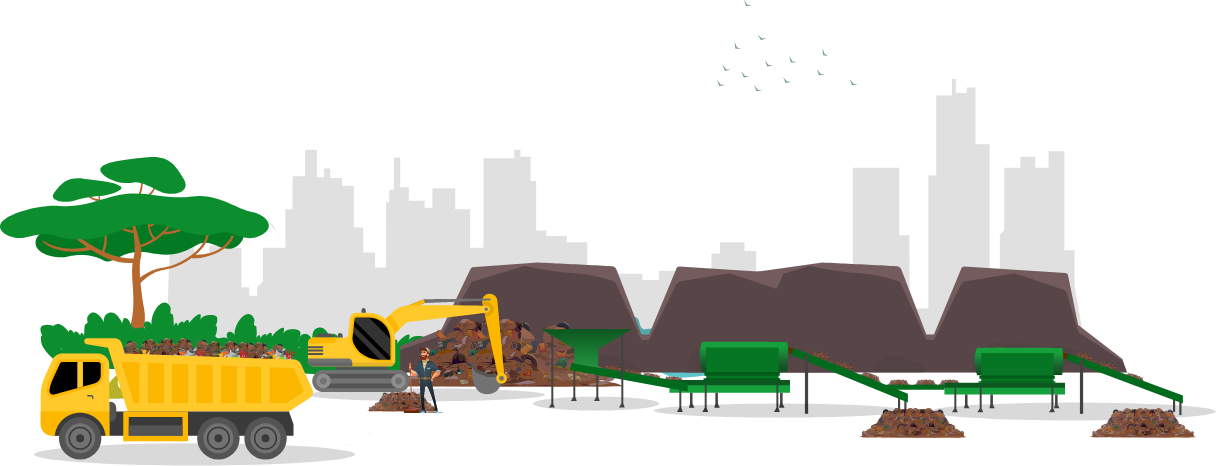
BioMining is the process of segregating the already-accumulated urban legacy solid wastes, helping in cleaning up legacy dump sites. This helps scientifically reclaim these lands for better usage. This is extremely crucial today, as the dump yards that were conceptualized originally to be outside the city are right at the epicentre of real-estate development these days.
SWMS is one of the leading players in this space and has been working on about 9 sites spread across the state, including Pallikaranai, Sattangadu, Villupuram, Rasipuram and Thoothukudi.
When cities were built, the dump yard for the city’s solid wastes was designed to be outside the city. Well… The dump yards are in the same place, but the city has expanded. Also, the kind of wastes that go into these yards has changed - plastics and other non-so-easily biodegradable have been indiscriminately disposed, rendering the air, waters, and lands around the dump yard unliveable, especially after these areas were made a part of the city as it expanded.
BioMining brings a perfect solution, not only to help in the reclamation of the land but also in making the entire process of re-dumping if need be, more efficient. BioMining, with its new-found recognition, has been funded not only by ULBs but also by the Swacch Bharat Mission. It is one of the most important initiatives in India’s Zero-Waste and Waste to Energy (W2E) endeavours.
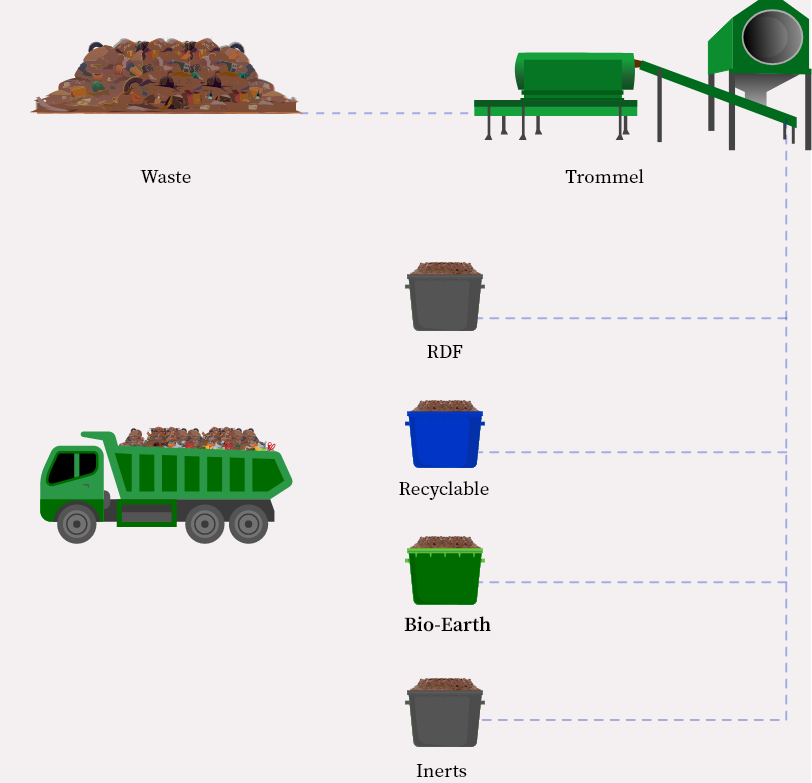
Srinivas Waste Management Services has undertaken 9 Bio Mining sites across Tamil Nadu and has been playing a major role in this field. The locations of SWMS BioMining sites are:
AvadiSathangaduPallikaranaiAthipattuVillupuramRasipuramGudalurThoothukudiVengadamangalam
SWMS is in parallel working on to get more of these projects across India and determined to support clean environment for all.
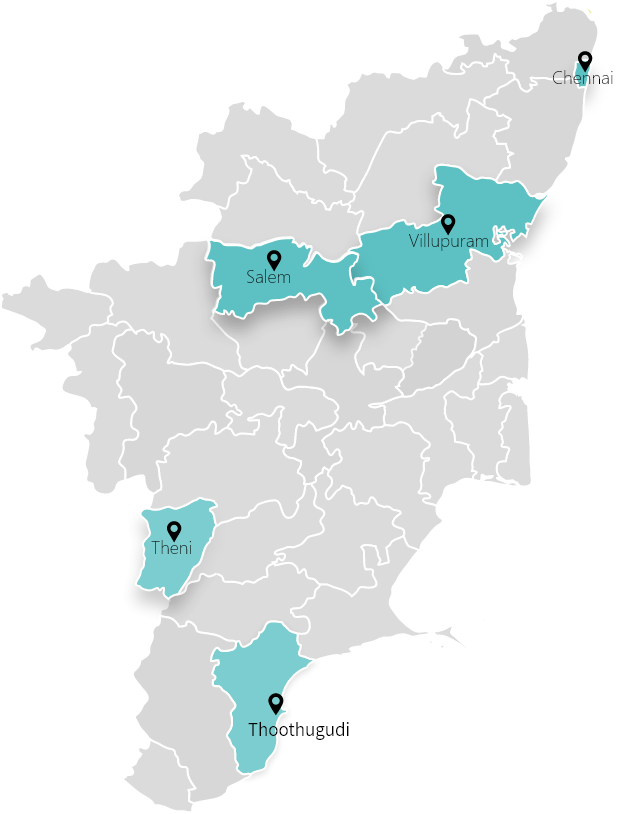
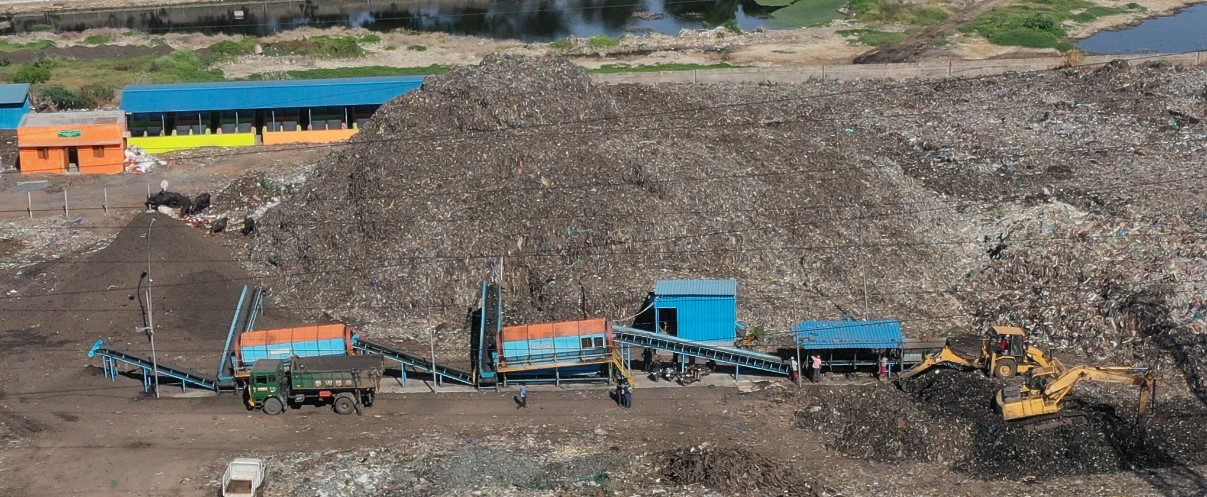
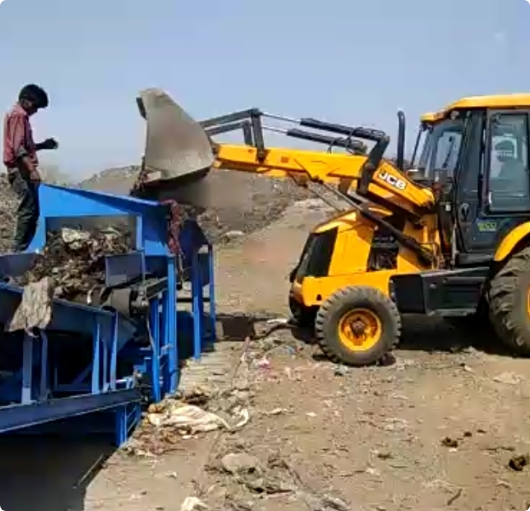
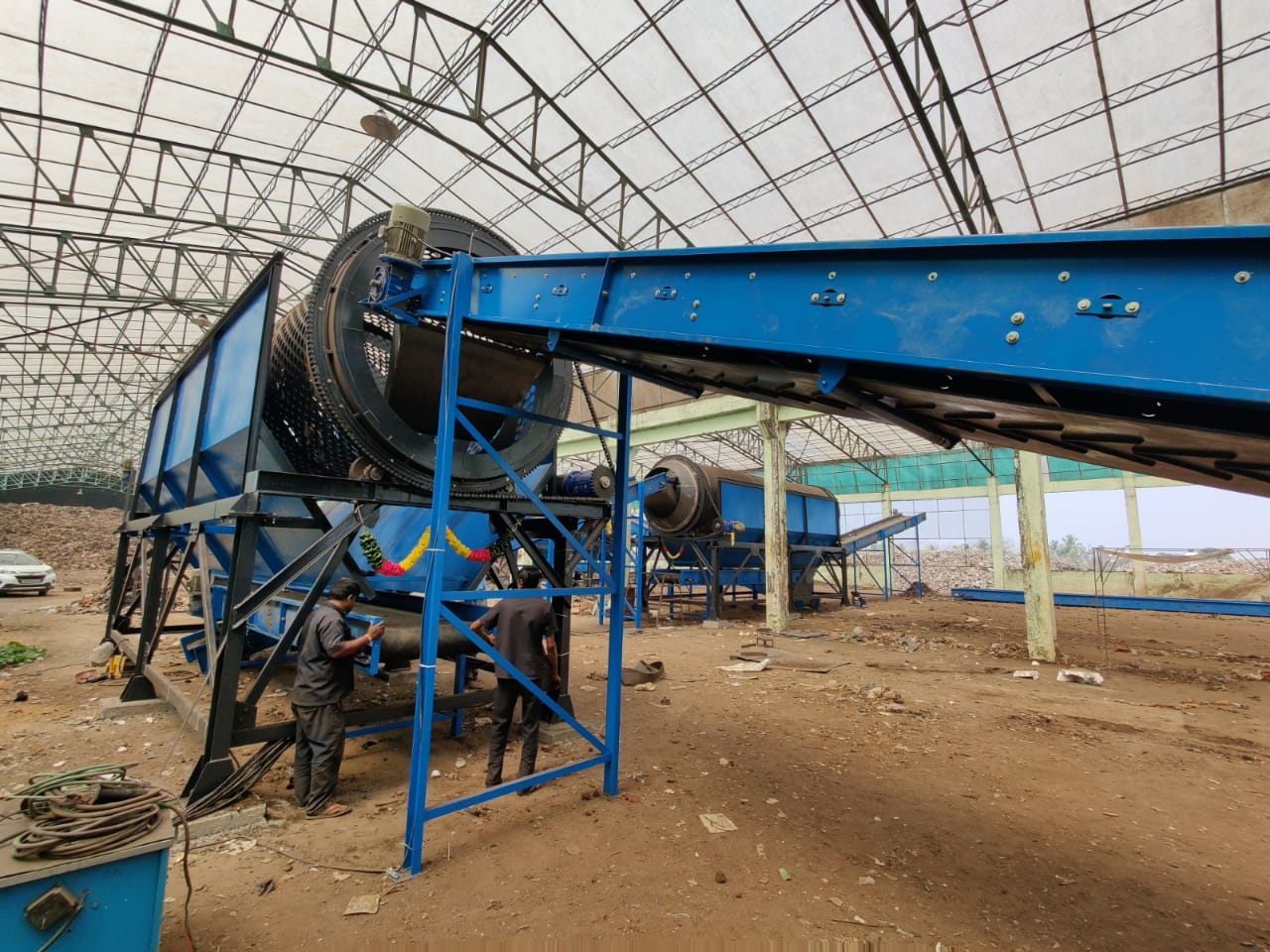

 The legacy wastes are sliced into parallel vertical heaps for measurement.
The legacy wastes are sliced into parallel vertical heaps for measurement.
 They are turned multiple times in a week to stabilize the wastes thereby stopping the production of leachate or methane.
They are turned multiple times in a week to stabilize the wastes thereby stopping the production of leachate or methane.
 The dried and decomposed waste is subject to segregation via trommel, screening into different factions, and they are segregated into fine sand, stones, soiled plastics, rags, footwear, bottles, tires, heavy metals, decomposed paper, and more.
The dried and decomposed waste is subject to segregation via trommel, screening into different factions, and they are segregated into fine sand, stones, soiled plastics, rags, footwear, bottles, tires, heavy metals, decomposed paper, and more.
 Wastes like plastics, rags, and tires that cannot be repurposed are sent to cement factories as Refused Derived Fuel (RDF), laying roads, or pelletization
Wastes like plastics, rags, and tires that cannot be repurposed are sent to cement factories as Refused Derived Fuel (RDF), laying roads, or pelletization
 The fine sand is taken by farmers and the coarse sand finds its application in land-filling and construction
The fine sand is taken by farmers and the coarse sand finds its application in land-filling and construction